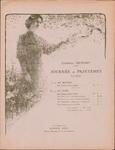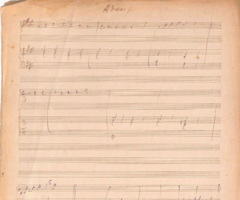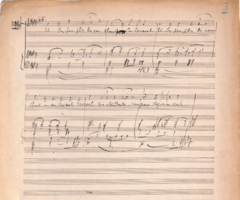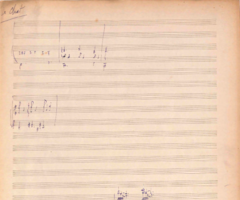
Gabriel DUPONT
1878 - 1914
Composer
After studying music with his father, Gabriel Dupont joined the classes of Gédalge, Widor and Massenet at the Paris Conservatoire. After obtaining a second prize in the Prix de Rome competition in 1902, he had his first success with the naturalistic opera La Cabrera, which won a major international competition and was premiered in Milan in 1904 under the auspices of the publisher Sonzogno. Dupont’s second opera, La Glu, after a novel by Richepin, was performed in 1910; this was a regionalist work which made ample use of Breton folk music. Two other works followed: the Orientalist Antar, which Büsser used as an example in his revision of Guiraud’s Traité pratique d’instrumentation, and La Farce du cuvier. These, though, were premiered after his death: after suffering from tuberculosis for many years, Gabriel Dupont died at the age of 36. His catalogue also contains about twenty mélodies or art songs set to poems by Verlaine, Silvestre, Rimbaud or Richepin, instrumental music and two important cycles of piano pieces: Les Heures dolentes (1905) and La Maison dans les dunes (1910), partly composed in Arcachon where, for reasons of health, Dupont spent the winter. With their unconventional style of writing, combining complex harmonies with an often mournful mood, these mysteriously-titled works call to mind not only Debussy’s modern language (without being epigonic), but also pieces by Franck, Massenet and Fauré. Their dominant mood seems, as with all of Dupont’s output, to be the “Mélancolie du Bonheur” (the melancholy of happiness) – the title of one of his piano pieces.













